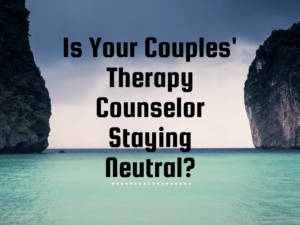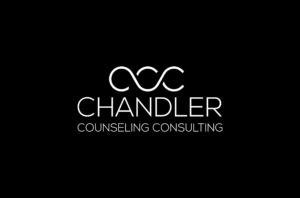IS THE SUCCESS RATE FOR MARRIAGE COUNSELING PREDICTABLE?
Although it is impossible to accurately predict whether or not marriage counseling will heal your relationship, there are predictive factors as shown by the renowned marriage researcher, John Gottman, PhD.
Research Studies Show Factors that Predict Whether Marriages Last or End in Divorce
In a research study by the Iranian Journal of Psychiatry in May of 2018, the John Gottman method for couples is evaluated.
In their paper outlining their research, the authors list several critical factors Dr. John Gottman, has identified as being essential for couples staying with their current romantic partner. They are:
- A ratio of positive interactions outnumbering negative ones of five positive, or higher, to every negative interaction
- A willingness to share their inner world with their romantic partner, including thoughts, wants, and feelings
- Mates express a high degree of interest in the inner life of their partner, including their mate's ideas, beliefs, emotions, hopes, fears. And, most importantly, how each feels about the other
- Both express appreciation and admiration for their partner
- The relationship shows movement towards each other, rather than distancing from each other
- Criticism, defensiveness, words, and gestures of contempt (like eye-rolling) and stonewalling behaviors (like refusing to communicate), are absent
- The couple devotes time and attention to increasing their friendship, emotional, and physical intimacy
I teach all of the above critical factors to my couples. The success rate of couples in marriage therapy is dependent on the extent to which both partners:
- Are willing to no longer engage in relationship-sabotaging behaviors, despite how they have communicated and behaved in the past
- Have become dedicated to consistently engaging with each other through espressions of goodwill, positive communications and helpful actions

Alcohol, Marijuana or Drug Dependency Dramatically Lower Successful Couples' Counseling Outcomes
As a marriage therapist, I must know if chemical dependency is a factor in a couple's difficulties. My criteria for alcohol is the number of drinks or 12 - 16 oz. beers a person consecutively drinks. I'm not overly concerned that one or two drinks in a day will hinder a couple's progress. In my view, any more than that will prevent the couple from getting better. Here is why:
- In many instances, severe problems in the relationship, such as angry outbursts, infidelity, and financial stress, were contributed to by inebriation with alcohol, drugs, or marijuana. The spouse, and even the person with chemical dependency themselves, cannot trust that the same or similar problems will not reoccur if the substance dependency continues.
- A big part of success in relationship therapy is increasing each partner's insight and their unimpaired access to their higher mental processes. When people use drugs that alter their minds or use alcohol at even low levels of inebriation, insight, and access to higher mental processing is diminished. This diminished access sustains for weeks after an instance of inebriation. People who stop indulging often say that it took them two to four weeks before their mind cleared.
- Responsibility for making real change in behavior does not occur when a person chooses to escape rather than stay with the discomfort of changing behavior. The habit of not facing one's problems, but instead escaping into inebriation, gives evidence for the person indulging, and their mate, that they are not ready and not willing to be accountable.

A Couple's Inside Distance Invites Outside Intimacy
My work as a counseling therapist is to encourage this rekindling and help the couple clear their barriers to long-term happiness. When mates are doing well together, they are sharing their lives as a romantic couple, rather than having most of their identity and energy tied up in being mom and dad (to pets as well as children), or grandma and grandma. The ingredients for being a happy, romantic couple retain much of the excitement and delight of courtship. Those ingredients include new shared experiences, lots of talking with each other, a good deal of affection expressed physically, and of course, sex.
But when mates have distance between them, the opposite may be observed:
- The couple has stopped thinking of each other as their boyfriend or girlfriend. Instead, their identity is about kids or grand kids and not each other.
- There typically has been an absence of new adventures together, including travel, seeing movies or plays, and going out on dates
- In-depth conversations with each other have diminished or even stopped (other than when arguing).
- Frequent touch, hugs, kisses, hand-holding, and body closeness is at a low level, if at all.
- The couple now has a low-sex or a no-sex marriage or romantic partnership.
Inside distance contributes to outside intimacy, which is an openness to another person outside of the marriage— this longing for friendship, adventure, affection, and sexual desire can render a romantic partner vulnerable to infidelity.
Unless both people in the current relationship are committed to rekindling the romance that initially brought them together, the success rate of marriage counseling is likely to be on the low side. My work as a counseling therapist is to encourage this rekindling and help the couple clear their barriers to long-term happiness.
Loose Boundaries Invite Romantic Entanglements with Others
Inside distance is not the only contributing factor. In my work with couples who did not succeed in healing from infidelity, another significant factor has been "loose boundaries." When working with a couple in which one of them had an affair (including inappropriate emotional entanglements, flirting, texting, snap chatting, sexting, and messaging), the harmful behavior has continued to some extent.
Despite my emphasizing the importance of establishing iron-clad boundaries to keep their relationship safe, the offending partner has kept up some level inappropriate communications with people outside of the romantic partnership. Those sustained loose boundaries may be due to several factors that I explore with the couple. But unless the "loose boundaries" partner stops this behavior, the couples counseling will not succeed in healing the romantic partnership.

The Professional & Personal Experience, Education, Skill Level and Neutrality of Your Marriage Therapist
When there are very different perspectives or some problematic history, such as due to infidelity, to work through, the education, experience skill, and neutrality of the couples counselor is a significant factor in becoming a happy couple once again.
A common question is whether or not I am currently married. The answer is yes. I am and have been happily married since 1995. Before getting married, we also lived together for three years. My current marriage to Bonnett Chandler is not my only experience of being married. When I was in my very early 20's, I had a year of living together, followed by a 15-year marriage that included having three children (who have been adults for many years).
The experience of being in a marriage that did not work out, alongside my current happy and fulfilling romantic partnership, informs my work with couples.
The Commitment to Do Things Differently as Shown by Real Action
Of all of the variables, in my view, this is the most critical one for determining the success rate of couples counseling. Without the willingness to do things differently, and that willingness proved by observable action, the other factors will not lead to real change.
What many spouses do is to complain about their partner, insisting that he or she must change. But only pointing out what their mate needs to do without taking responsibility for their communications and behavior, it is unlikely that the couple will have success with renewing their relationship through marriage therapy.

Many More Variables Can Impact the success rate of Marriage Therapy
There are many variables that impact how well couples therapy will work for your mate and you. The following are also significant factors that I have found in my couples' counseling practice:
- Allowing Others to be Overly Involved in Your Romantic Partnership
- Putting Relationships with Children, Friends, or Family Members Ahead of a Mate
- Equal vs. Unequal Power Balance in the Relationship
- Behaviors Consistent with a Personality Disorder
- Mental Illness in One or Both Partners
- Has Your Relationship had Dramatic and Frequent Highs & Lows Cycles?
- Willingness vs. Unwillingness to Question and Change Beliefs
- Cultural and Gender-biased Beliefs

